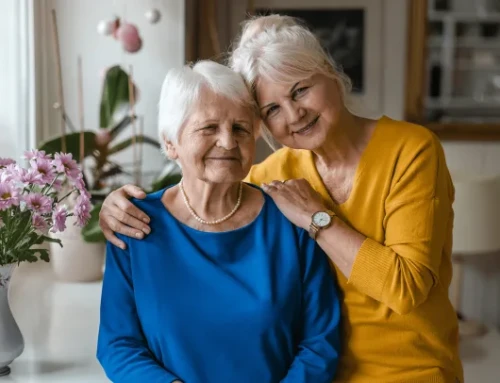
7 Signs Your Loved One Could Benefit from Assisted Living
Your parent forgets to take their medication. A neighbor calls to say they nearly fell stepping off the curb. You’ve noticed unopened mail stacking up on the counter. These small things add up—and may be signs that your loved one is having difficulty managing independently.
It’s never easy to consider that someone you care about might need more help. You might wonder if it’s “too soon,” or if they’re just having an off week. These decisions are personal, and every situation is different. But sometimes, a closer look reveals that what’s happening isn’t just part of getting older—it’s a signal that more support could improve quality of life.
If you’ve been questioning whether assisted living could help your loved one, here are seven signs to look for.
1. Daily Tasks Are Becoming Too Much
Preparing meals, doing laundry, and getting dressed can become more difficult with age. If your loved one skips meals or wears the same clothes for days, they may have trouble keeping up with their routine.
A bit of help can go a long way in restoring comfort and structure to their day.
2. Memory Problems Are Affecting Their Safety
It’s normal to forget a name or lose track of a word now and then. However, repeated confusion, misplaced medications, or getting lost in familiar places can be more concerning.
Memory-related conditions such as Alzheimer’s often start subtly. Identifying early signs and seeking support can help reduce frustration and improve safety.
3. Frequent Falls or Mobility Concerns
Falls are among the most common reasons older adults lose their independence. If your loved one seems unsteady, avoids walking, or has already fallen, consider an environment that reduces those risks.
Safe flooring, grab bars, and nearby help can offer peace of mind for everyone involved.
4. They’re Not Socializing Anymore
Some older adults begin to distance themselves from the people and activities they once enjoyed. This might mean skipping church, not returning phone calls, or declining social invitations.
This kind of withdrawal isn’t just about loneliness—it can impact mental and emotional well-being. A supportive environment with easy access to connections can make a big difference.
5. Weight Loss or Poor Nutrition
Unexplained weight loss may point to poor nutrition. This is an important sign to take seriously, whether it’s due to a loss of appetite, physical challenges in preparing food, or even forgetfulness.
Regular, balanced meals help support overall health, and sharing those meals with others can bring back joy.
6. Medication Is Missed or Mixed Up
Mixing up medications or forgetting doses can lead to medical complications. You might notice full pillboxes, expired prescriptions, or changes in your loved one’s behavior that suggest something’s off.
Medication support can ease this burden while ensuring treatment plans stay on track.
7. Home Is No Longer Well-Maintained
Stacks of unopened mail, overflowing laundry baskets, or dishes left for days may signal that daily upkeep has become overwhelming.
It’s not about perfection—it’s about noticing when the home no longer reflects your loved one’s habits.
A clean, calm space often leads to better rest and less stress.
What Comes Next
Seeing these signs doesn’t mean rushing into change. It means pausing, reflecting, and starting a conversation—with your loved one and others involved in their care.
Whether you’re just beginning to explore care options or are feeling ready to take the next step, having these signs in mind can help you approach the situation with clarity and compassion.
Farmington Square Gresham offers Assisted Care and Memory Care services for older adults in the Gresham, Oregon area. If you’re starting to explore care options for someone you love, we’re here to answer questions and help guide you forward—at your pace and with your priorities in mind.


